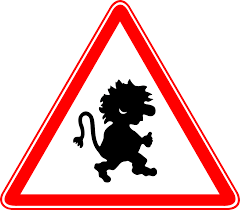02 December 2021
Internet Trolls
The Australian approach.
By John Watson

Australia, it seems, is leading the charge. First in the case of Voller v Nationwide News Pty Ltd, its High Court ruled that those who operate media sites, for example through a Facebook page, must take legal responsibility for comments made by third parties on those sites. That means that if the reader of an online newspaper posts a defamatory comment on its web page, the newspaper itself is liable as publisher whether or not it agrees with the comment. To keep the publisher safe from liability under this head, comments have to be edited to remove defamatory comment and some of us will feel that that is how things should be anyway. When, years ago, we set up the Shaw Sheet, the decision was made not to allow comments because we did not have the staffing to keep them under review. Safer by far to rely on letters to the editors which they would read before publishing them. That has obviously affected spontaneity, but a system under which readers can post direct on to the site is a clear “no-no” (although thought is being given to a system under which comments are blocked until reviewed). Needless to say the Australian ruling has upset the news providers and some, such as CNN, have blocked Australian access to their Facebook pages; but they are whistling in the wind. The Court’s approach makes such obvious sense that it will soon be adopted worldwide.
The second area is a legislative attack on trolls with a right for the defamed to insist on defamatory posts being removed, the sanction being an action against the platform itself. Also a requirement that the troll be revealed, putting the onus on the platform to keep records of who is posting. The legislation is being revealed this week but everyone will be watching and one way or another the avenues for anonymous attacks will be closed off.
There is an inevitability about this. For only so long could the troll community expect to operate behind a cloak of anonymity. But it is a pity too. In the early days of social media it was hoped that it would provide a channel for minorities suffering repression to communicate with the outside world, that it would let the light into dark places, that like some global whistle-blower it would reveal what went on in gulags, in torture chambers and behind the curtain of bland and cruel officialdom. Now that force for good is lost but it was always inevitable that that would be the case. Things which challenge central authority have never fared well and that is another reason why we can expect to see the anonymity of online comment coming to an end.
Is there any middle ground? Could a system be devised which kept the whistle-blowing potential but came down heavily on defamation and trolling? Probably not. No doubt there will be talk about public interest immunity but this is a worldwide system and one person’s whistle-blowing is another’s defamation. Imagine Trump and the Democrats agreeing on what is in the public interest, for example. Can you? No, neither can I. Cutting through all the face-saving caveats, the end position has to be that those who make allegations must be prepared to stand behind them and that is the case even where that leaves them unfairly and wrongly exposed. There is no other way of dealing with it, so we had all better watch how the legislation develops in Australia and prepare for something similar to come in world wide. Like it or not, that is where it is all going to end up.
Cover page image: rones / Openclipart / Creative Commons


